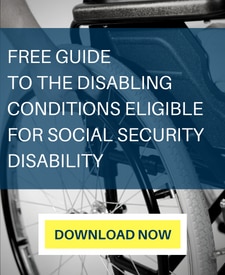Introduction
In the intricate world of medical conditions, few queries arise as frequently as ‘is Down syndrome a disability?’. Down syndrome itself is among the most multifaceted and impactful medical conditions. If you find yourself grappling with the challenges and uncertainties that accompany this genetic variation, take solace in the fact that there’s a beacon of support: Social Security disability benefits. Drawing from more than two decades of expertise in personal injury and Social Security cases, I’m here to expertly guide you through this intricate journey. This guide is not just an informational resource; it’s a comprehensive roadmap designed to offer understanding, empowerment, and a clear path to securing the assistance you rightfully deserve.
Decoding Down Syndrome: A Genetic Exploration
Unveiling the Genetic Underpinnings
Down syndrome, a genetic condition, is a result of an extra chromosome, specifically chromosome 21. This additional genetic material disrupts the delicate genetic balance, giving rise to the unique physical and cognitive traits associated with Down syndrome. While the standard chromosome count is 46, individuals with Down syndrome possess 47 due to a misstep in cell division during conception.
From Diagnosis to Insight
The diagnosis of Down syndrome is often possible during pregnancy through various prenatal tests, granting families the time they need to prepare for the journey ahead. However, instances exist where individuals receive the diagnosis later in life due to gaps in medical understanding. An essential facet of comprehending Down syndrome lies in considering the mother’s age, as the likelihood of having a child with this condition increases with each passing year.
The Face of Down Syndrome: Characteristics and Impact
Exploring the Physical Attributes
The physical attributes of Down syndrome are distinct and encompass a range of features. These include low muscle tone, a shortened neck with excess skin, a flattened facial profile, petite facial features, and eyes that exhibit an upward slant. The intensity of these characteristics varies, reflecting the diverse spectrum of Down syndrome.
Intellectual Quotient (IQ): Navigating Cognitive Diversity
Categorizing Down syndrome by severity is pivotal, as it provides insights into an individual’s cognitive capabilities. Mild Down syndrome is correlated with an IQ of 50-69, while moderate cases range from 35-50. Severe instances manifest an IQ of 20-35, underscoring the cognitive challenges individuals with Down syndrome navigate.
Navigating Social Security Disability Benefits for Down Syndrome
The Nexus of Care and Assistance
Amidst the intricate tapestry of Down syndrome, securing financial support assumes paramount importance. This section delves deep into the significance of applying for Social Security disability benefits, offering a safety net for the uncharted journey ahead. Crucially, these benefits are not exclusive to adults; children can also qualify under the Supplemental Security Income (SSI) program.
Unified Path to Eligibility
Whether you’re a child or an adult, the notion of applying for Social Security disability benefits warrants thorough consideration. The eligibility criteria remain steadfast, highlighting the role of the disability in constraining the ability to partake in substantial gainful activity.
Demystifying the Evaluation Process
The evaluation process for eligibility comprises three core steps:
- Engagement in Substantial Gainful Activity: While employment is permissible, it must not be extensive to qualify for benefits.
- Severity Analysis: The Social Security Administration (SSA) meticulously assesses whether Down syndrome significantly impairs the individual’s capacity to engage in gainful employment.
- Meeting Listed Impairments: Down syndrome is scrutinized under Listing 10.06, which offers specific diagnostic criteria for the purpose of automating disability determination.
Elevating Your Prospects: Expert Guidance and Empowerment
Advancing with Legal Expertise
While the path to securing disability benefits for Down syndrome may appear intricate, the potential rewards are immeasurable. Engaging a skilled Social Security Disability Attorney significantly bolsters your odds of achieving a successful outcome.
In Conclusion: Advocating for a Fulfilling Future
The journey through Down syndrome is characterized by its challenges and triumphs. Navigating the landscape of disability benefits demands more than just knowledge; it requires empathy, strategic planning, and unwavering advocacy. Whether you’re a parent seeking support for your child or an individual with Down syndrome striving for security, the road to a brighter future begins with informed decisions. At LaBovick Law Group, we’re steadfast in our commitment to standing by your side, ensuring your rights are upheld, and your well-being is safeguarded. Remember, taking this step won’t strain your finances; our fees are contingent upon your success. Your journey toward securing disability benefits and embracing a more secure future commences right here.
Is Down syndrome considered a disability?
Absolutely, Down syndrome is unequivocally recognized as a disability owing to its profound impact on cognitive and physical functions.
What benefits can I claim for a child with Down syndrome?
Children with Down syndrome may qualify for Supplemental Security Income (SSI) and, in some cases, state-sponsored health insurance, providing indispensable financial and healthcare support.
How much SSI do you get for a child with Down syndrome?
The precise amount of SSI varies based on factors such as family income and available resources. Seeking guidance from a disability attorney can provide nuanced insights.
How can a disability attorney assist with Down syndrome benefits claims?
An adept disability attorney possesses an intricate understanding of the claims process, enhancing the likelihood of a favorable outcome. Their expertise simplifies the journey to obtaining much-needed benefits.





